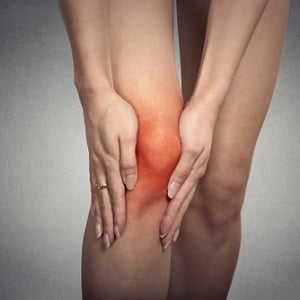
Diet plays a major role in the prevention and treatment of gout. We tell you what dietary changes you should make.
Step 1. Understanding the link between gout and food
Gout is a type of arthritis that usually affects the joints of the big toe. Gout is caused by deposits of urate crystals in the joints. Urate is one of the breakdown products of compounds called purines. People who suffer from gout tend to either produce more urate than normal or to excrete less in the form of uric acid. Gout is usually accompanied by raised blood urate levels.
Purines, which are broken down to urate and uric acid originate from two sources, dietary protein and body synthesis.
Men are much more prone to develop gout than women, although post-menopausal women also run an increased risk.
Factors that can precipitate a gout attack, include:
- Overweight – many patients who suffer from gout are overweight or obese
- Alcohol – acute attacks of gout are often precipitated by overindulgence in alcohol
- Dietary purines – eating foods rich in purines (meat, fish, fish roes) can cause an attack
- Starvation or very-low-energy diets – blood urate levels rise dramatically when body proteins are broken down due to starvation or very low energy intake
- Kidney disease – any disease, such as chronic renal failure, which prevents the kidneys from functioning properly and excreting sufficient urate can cause gout
- Other diseases – diseases such as leukaemia or psoriasis can cause increases in urate production
- Drugs – chemical compounds which decrease the excretion of urates, such as the so-called thiazide diuretics, can cause a gout attack
It is clear that your diet can play a role in your attacks of gout.
Step 2: Adopting new, healthy habits
You can reduce your risk of another gout attack. Follow these guidelines:
- Reduce weight
- Avoid alcohol: Cut down on alcohol intake drastically. If necessary avoid all alcohol or restrict drinking to less than two drinks a day. A harsh, but effective way of preventing gout.
- Avoid gorging: Avoid rich, heavy meals which contain lots of fat and purines – i.e. the typical Christmas dinner is an excellent example of a meal laden with fat and purines.
- Avoid purines: Avoid high-purine foods like liver, kidneys, sweetbreads, sardines, anchovies, fish roes (eggs and caviar) and meat extracts.
- Drink water: Drink six or more glasses of water throughout the day and a glass at night before going to bed to help the kidneys excrete urates.
- Go easy on caffeinated drinks: Don't overdo tea and coffee drinking and switch to rooibos tea if you find your joints start aching after a coffee/tea binge.
Moderation and abstinence from alcohol – those are the solutions to gout.
Step 3: The basic principles of restricting dietary purines
- Water – Drink at least six glasses per day and make sure that you have one of the glasses before you go to sleep. It helps getting rid of uric acid.
- Tofu (bean curd) – Use as protein source. Research suggests that it increases uric acid secretion.
- Macronutrients – Diet should be relatively high in carbohydrate (like bread, rice and pasta), moderate in protein (e.g. tofu) and low in fat.
- Alcohol – An excess of alcohol should be avoided. Total abstinence and avoidance of alcohol may be required in severe cases.
- Body weight – Maintenance of, or gradual reduction to, ideal body weight could prove helpful.
The absolute don’ts:
Avoid foods with a high purine content. The following foods contain 100 to 1 000 mg of purine nitrogen per 100 g of food:
- Anchovies
- Brains
- Consommé
- Goose
- Gravy
- Heart
- Herring
- Kidney
- Mackerel
- Meat extracts
- Mincemeat
- Mussels
- Roe
- Sardines
- Yeast (baker’s and brewer’s, taken as supplement)
The maybes, and in moderation
Foods with a moderate purine content
These foods contain 9 to 100 mg of purine nitrogen per 100 g of food. One serving of meat, fish or poultry (90 g) or one serving of vegetables (1/2 cup) from this group, is allowed per day, depending on the condition of the patient:
- Asparagus
- Dried beans
- Lentils
- Meat, fish and poultry (except the above-mentioned)
- Mushrooms
- Dried peas
- Shellfish
- Spinach
The yes foods
The foods with a low purine content
These foods contain negligible amounts of purine and may be used daily:
- Bread (white) and crackers
- Butter or margarine (in moderation)
- Cake and cookies
- Carbonated beverages
- Cereals
- Cheese
- Chocolate
- Coffee
- Cream (in moderation)
- Custard
- Eggs
- Fats (in moderation)
- Fruit
- Gelatin desserts
- Herbs
- Ice cream
- Milk
- Noodles
- Nuts
- Oil
- Olives
- Pickles
- Pasta
- Popcorn
- Puddings
- Relishes
- Rice
- Salt
- Sugar and sweets
- Tea
- Vegetables (except those mentioned in the first group)
- Vinegar
- (Source: Krause’s Food, Nutrition, & Diet therapy, 10th edition (Mahan LK, Escott-Stump S))




 Publications
Publications
 Partners
Partners














